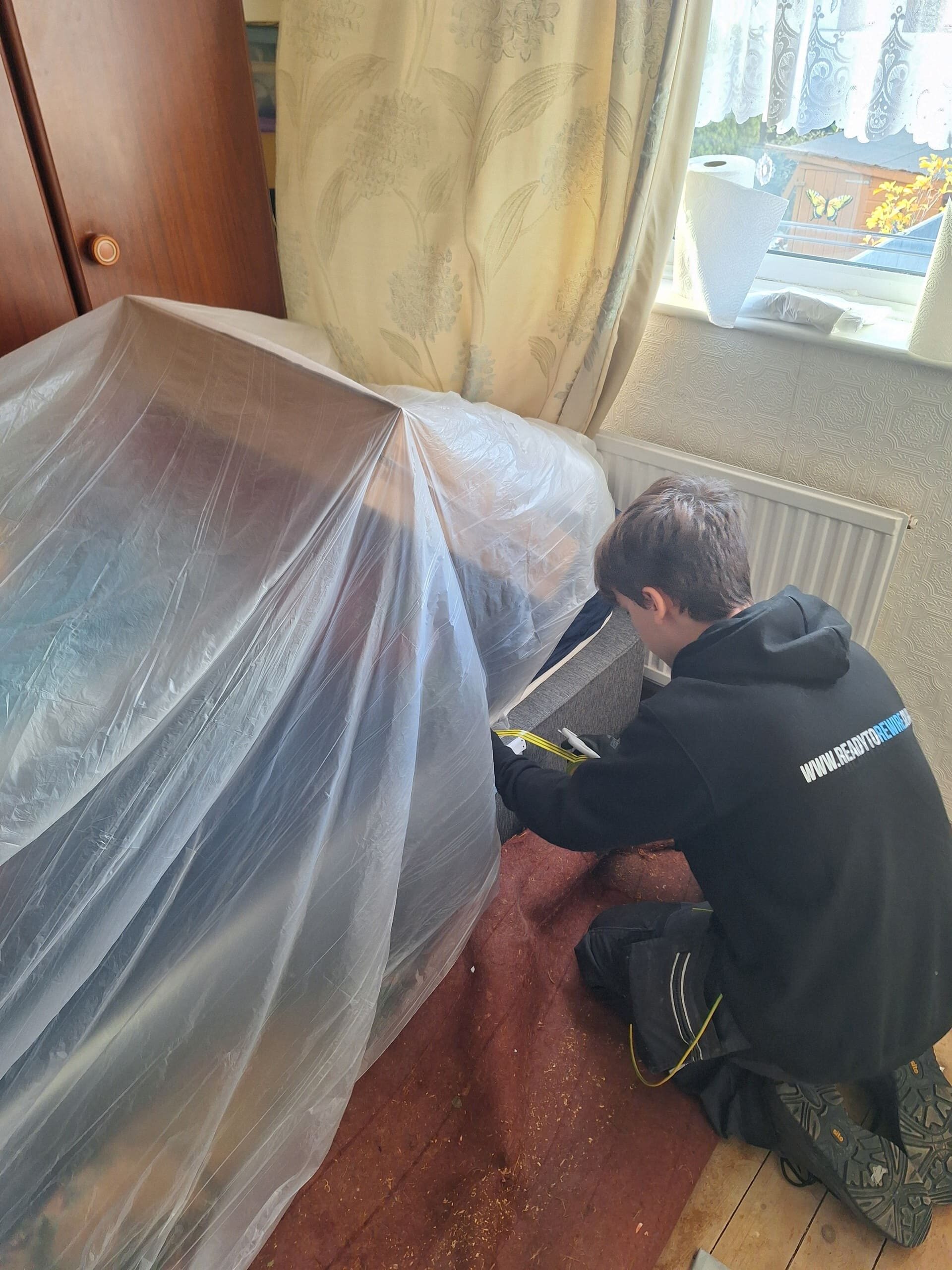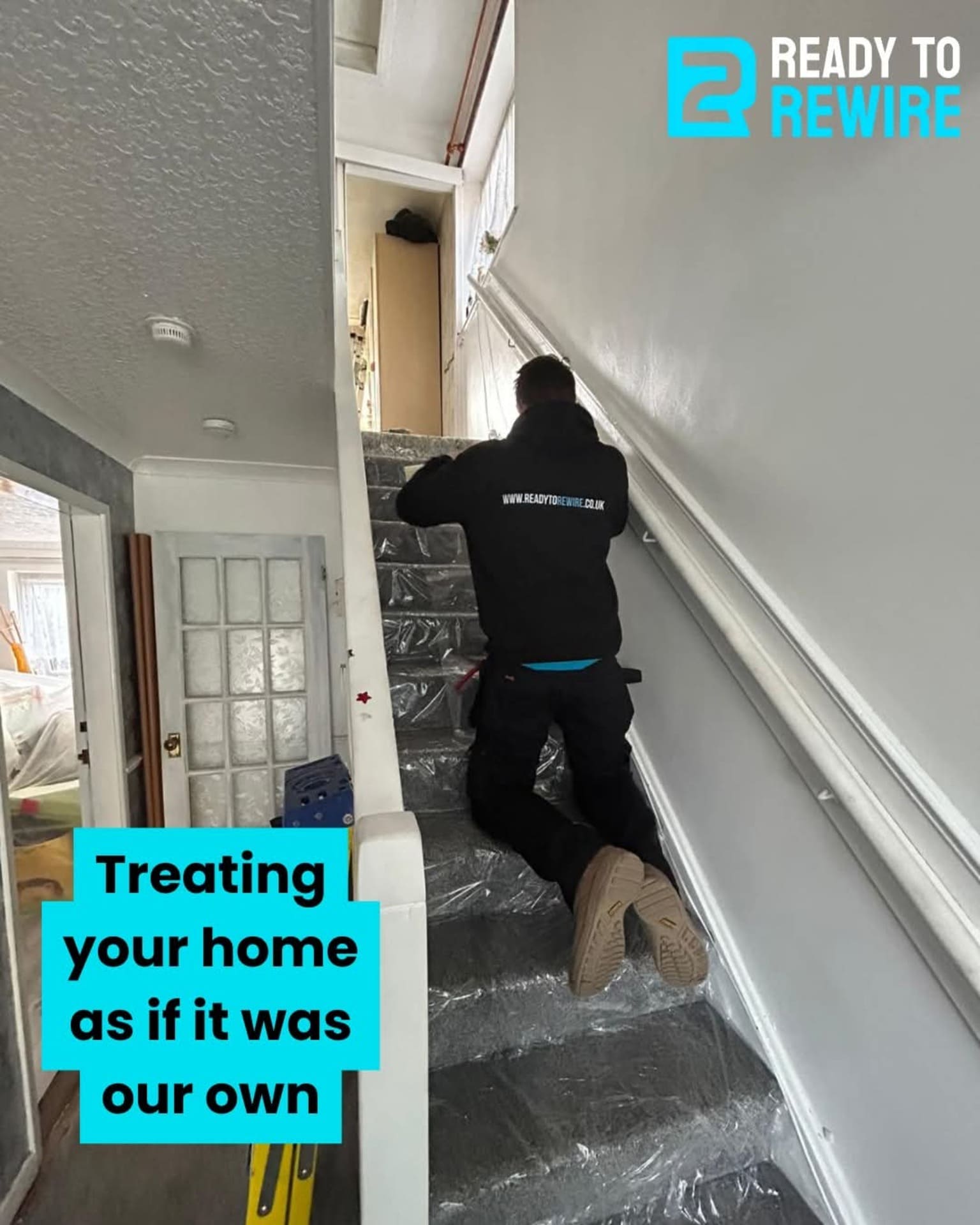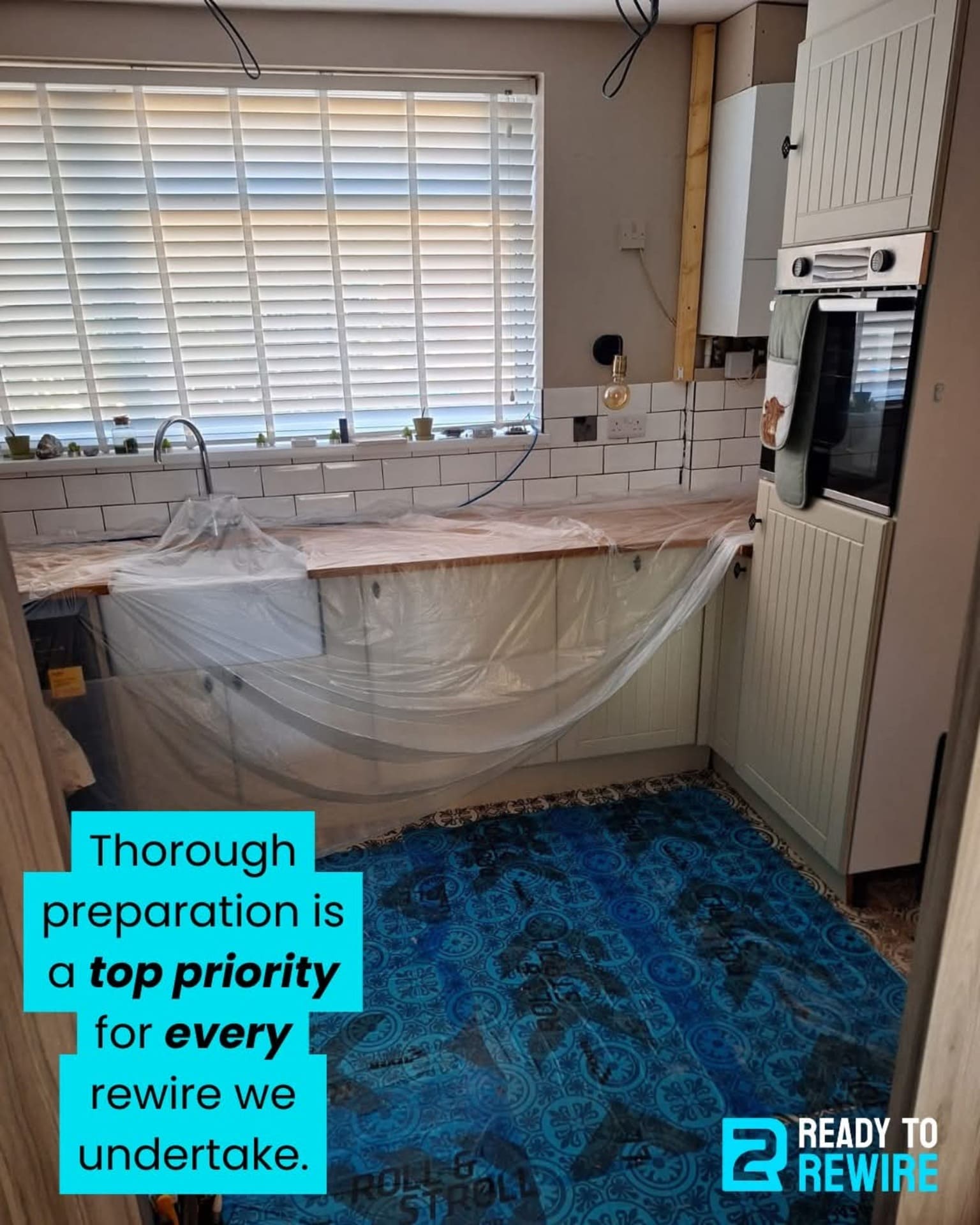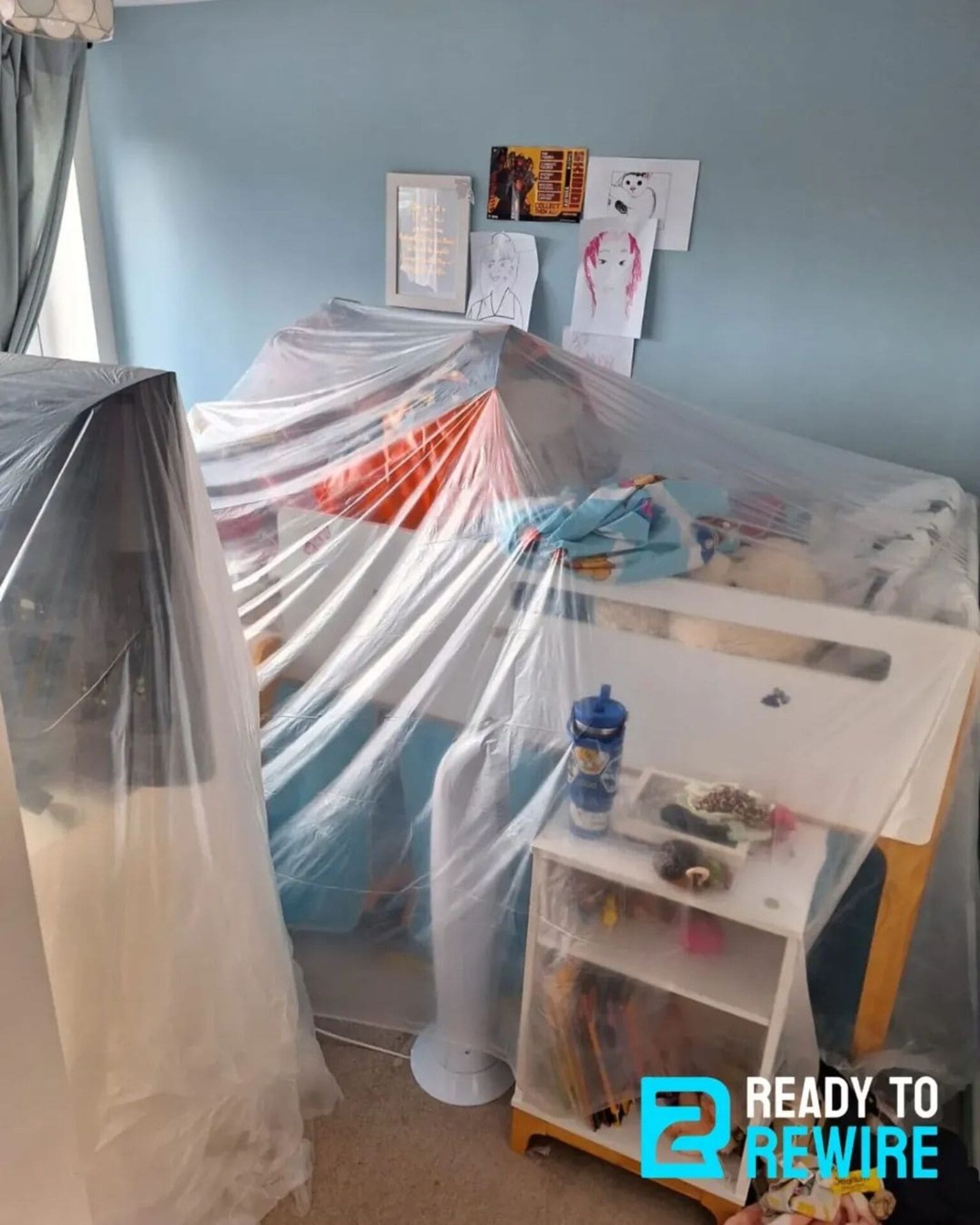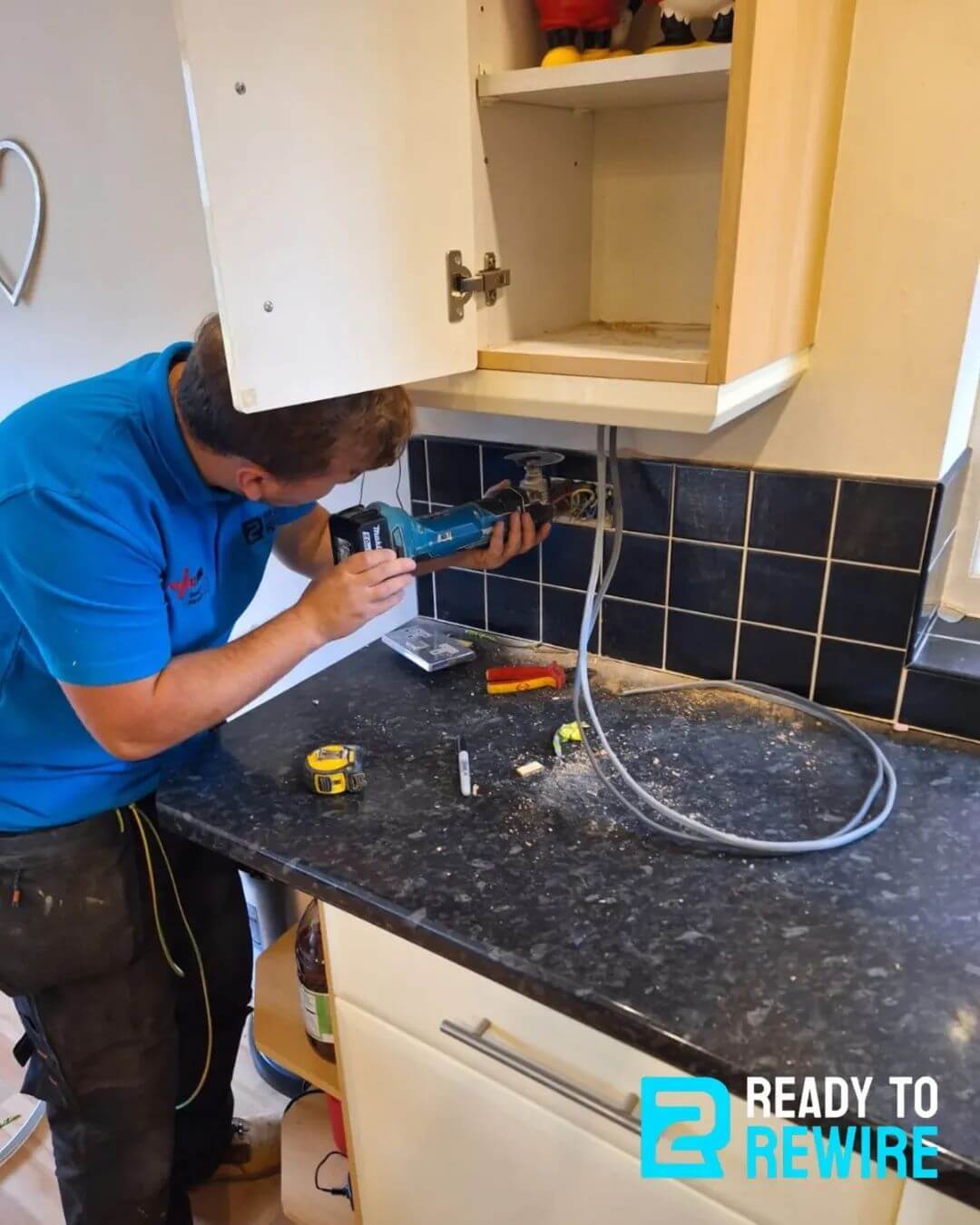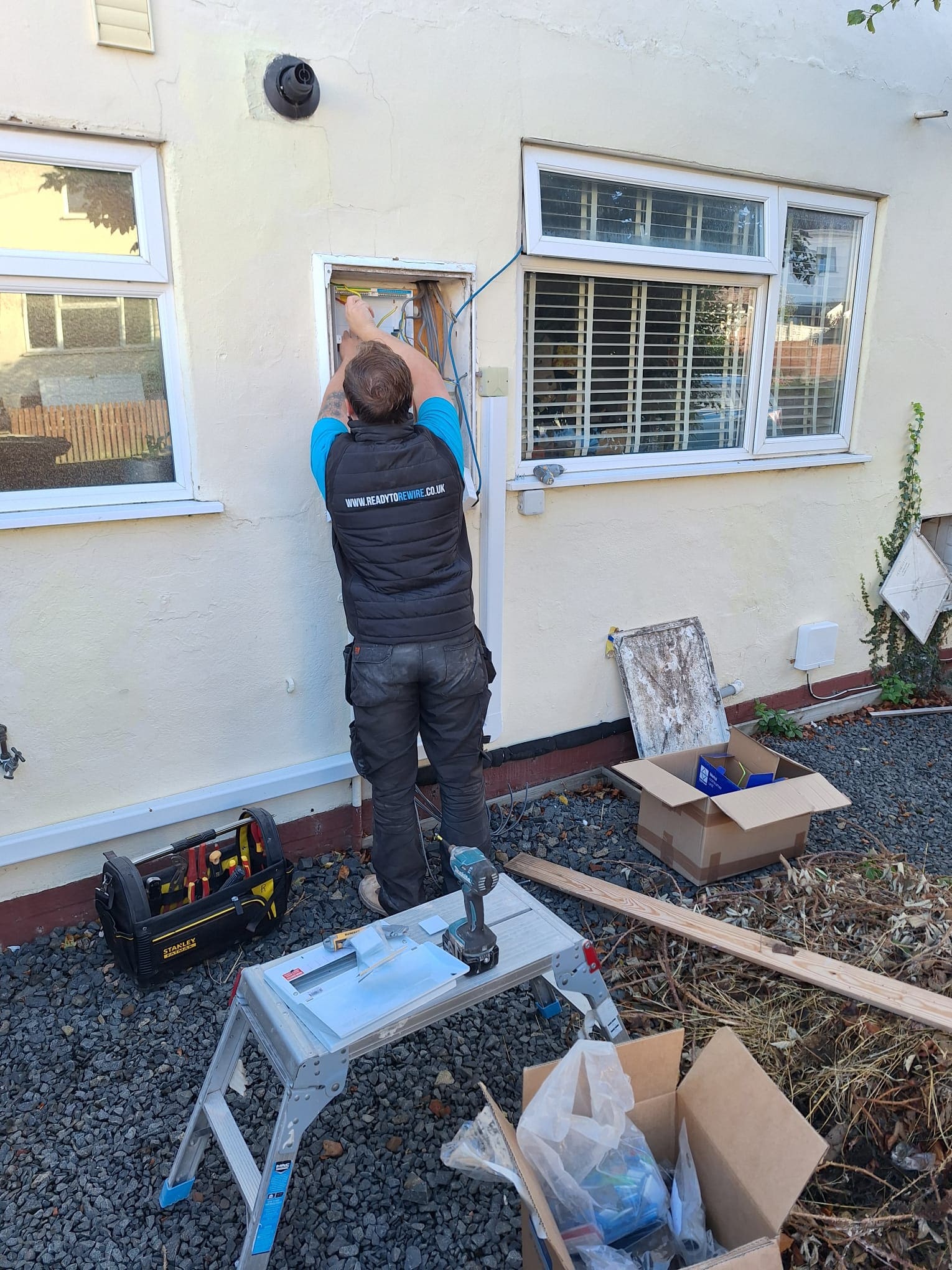Rewiring a house is more than just a technical job. It is a full-scale disruption to your living space. But with the right planning, it does not need to be a nightmare.
This guide will walk you through what to expect, how to prepare, and what to do before, during, and after the work begins. Whether you are staying in the house or moving out, a little preparation goes a long way toward making your rewire faster, cleaner, and much less stressful.
What to Expect During a Rewire
Think of a rewire as surgery for your home. It is precise and necessary, but it can get messy. Most full rewires involve:
- Dust, drilling, and cutting through walls and ceilings
- Floorboards being lifted and cables routed throughout each room
- Periods where power will be switched off temporarily
Expect electricians to need access to every room. The more clearly you understand this upfront, the more smoothly the project will go.
Steps to Prepare Before Work Begins
Before the team arrives, there are a few things you can do to protect your home and help everything run more efficiently.
- Move or cover your furniture wherever possible
- Take down any fragile or valuable items from shelves and walls
- Cover or remove carpets and flooring in the work areas
- Let your electrician know in advance about any plans for new walls, layouts, or future renovations
We always recommend having a checklist. Something as simple as labelling which items are staying or going can save a lot of time during the job.
Should You Move Out? Or Can You Stay?
Many homeowners ask us this. The answer depends on the scale of the job and your personal situation.
Yes, it is possible to stay in your home during a rewire. We often work room by room so that clients can remain in place. However, there are pros and cons:
Staying
- Saves on accommodation costs
- Allows you to stay involved in day-to-day decisions
- May be uncomfortable due to noise, dust, and limited power
Moving out
- Quicker and easier access for electricians
- Less disruption to your daily routine
- Costs more if temporary accommodation is needed
If you have children, pets, or work from home, it is especially worth weighing your options. As Reece from Ready to Rewire puts it:
“We always work with each client’s situation. Some stay, some go. The key is planning room by room and knowing what to expect.”
Questions to Ask Before Work Starts
Good communication helps everything run more smoothly. Before the rewire begins, be sure to ask:
- How long is the job expected to take?
- What time will the electricians be on site each day?
- Will you be restoring walls, ceilings, or decorations afterward?
- Can I add extra sockets or move switches while the work is happening?
We would rather you ask every question upfront than feel uncertain during the job. No question is too small when it comes to your home.
How to Make the Process Easier (For You and the Electricians)
Here are a few practical steps that make a big difference during a rewire:
- Label which items are staying in each room and which can be removed
- Plan out your socket and lighting locations in advance
- Make sure access routes are clear, including to the loft and fuse box
- Let us know about any areas that should not be disturbed, such as built-in wardrobes or custom joinery
Every bit of preparation you do helps us work faster and with less mess.
What Happens After the Rewire
Once the rewiring is complete, there are a few important finishing steps:
- We will clean up work areas and remove debris
- If plastering or minor patching is needed, we will let you know what is included
- You will receive full certification, including your updated EICR
You will also get advice for aftercare, maintenance tips, and who to contact if anything needs follow-up. We do not just walk away when the last socket is screwed in.
Final Thoughts: Preparation Is Everything
A house rewire is a big project, but with a bit of planning, it does not need to cause chaos. By understanding what to expect and taking steps to prepare your space, you can make the experience much easier for yourself and for the team doing the work.
Thinking about booking a rewire? At Ready to Rewire, we offer friendly advice and clear communication from start to finish. Get in touch for a quote or a free preparation checklist to get started.



